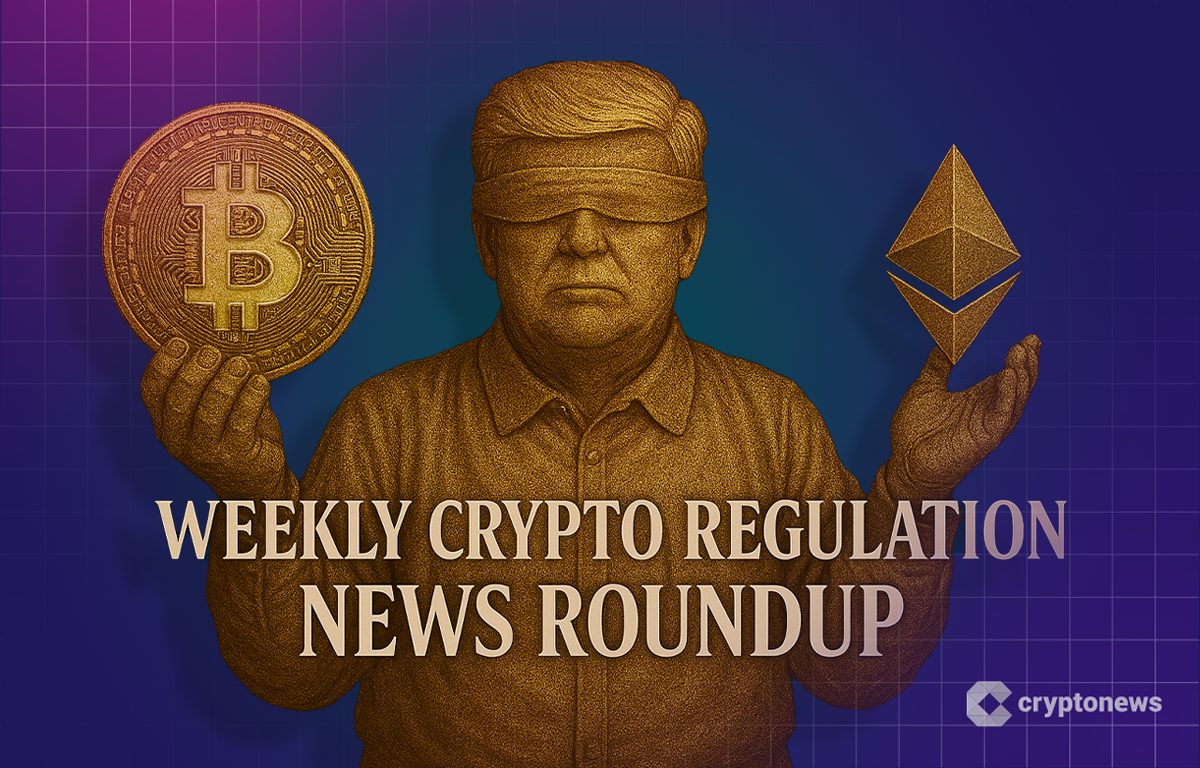Weekly Crypto Regulation Roundup: Stablecoin Boom, CFTC Power Moves, and Senate Shake-Ups

A wave of major policy developments across Washington is reshaping the U.S. digital asset regulatory environment, with stablecoin warnings from the Federal Reserve, new clarity emerging at the Commodity Futures Trading Commission (CFTC), fresh Senate dynamics, and shifting positions at the Securities and Exchange Commission (SEC). This shows a transformative moment for how the U.S. will govern crypto markets heading into 2026.
Fed Governor Warns Stablecoin Surge Could Push Down U.S. Interest Rates
A senior Federal Reserve official has issued one of the strongest warnings yet about the macroeconomic implications of the booming stablecoin sector. Fed Governor Stephen I. Miran, speaking at the BCVC Summit 2025 in New York, said the rapid rise of dollar-backed stablecoins—which now process trillions in payments—could become a force shaping long-term interest rates.
In a speech titled “A Global Stablecoin Glut: Implications for Monetary Policy,” Miran argued that mounting global demand for dollar-backed tokens is increasing purchases of U.S. Treasuries and other high-quality dollar assets. That, he said, mirrors the “global savings glut” of the early 2000s that helped drive interest rates lower worldwide.
“Stablecoins may become a multitrillion-dollar elephant in the room for central bankers,” Miran warned. “Their growth increases the supply of loanable funds in the U.S. economy, placing downward pressure on the neutral interest rate.”
The remarks show how deeply crypto—once dismissed as fringe—is now entangled with core questions of U.S. monetary policy.
CFTC Leadership Shake-Up: Trump’s New Nominee Heads Into Crucial Senate Hearing
In a separate development, the CFTC is entering a leadership transition. President Donald Trump has nominated Michael Selig, a senior SEC official known for his pro-crypto stance, to serve as both chairman and commissioner of the CFTC.
Selig, currently chief counsel for the SEC’s Crypto Task Force, is set to face a high-stakes Senate confirmation hearing on November 19. His nomination follows the unexpected withdrawal of the administration’s earlier pick, former CFTC Commissioner Brian Quintenz.
The shift comes at a moment of institutional turbulence for the agency. With the CFTC facing mounting pressure to define its role in regulating digital commodities—and now preparing for some of the most consequential policy expansions in its history—Selig’s hearing is expected to draw intense industry and political scrutiny.
CFTC Prepares to Approve Leveraged Crypto Trading in the U.S.
Amid its leadership changes, the CFTC is simultaneously preparing to authorize leveraged spot cryptocurrency trading on regulated U.S. exchanges as early as next month. Acting Chair Caroline Pham confirmed the plans in a post on X, indicating a major shift that could bring institutional-grade leveraged products directly to American investors.
The talks involve major market operators, including CME Group, Cboe Futures Exchange, ICE Futures, and crypto-native platforms such as Coinbase Derivatives, Kalshi, and Polymarket U.S.
Pham said the agency is using its existing rulebook to “swiftly implement recommendations” from the President’s Working Group on Digital Asset Markets while Congress continues to debate a broader legislative framework. If finalized, the approval would mark one of the most significant advances for the U.S. crypto market infrastructure in years.
Crypto Lawyer John Deaton Launches New Senate Bid
On the political front, well-known crypto attorney John Deaton is launching another U.S. Senate run. The pro-XRP lawyer, who previously attempted to unseat Sen. Elizabeth Warren, has announced a 2026 campaign—this time targeting Democrat Sen. Ed Markey of Massachusetts.
Deaton, known for filing amicus briefs in major SEC crypto lawsuits, framed his campaign as a fight for “leaders who know how to deliver results.” The race is set to become another flashpoint between crypto advocates and long-time industry critics.
Senate Market Structure Bill Would Expand CFTC Power—With Key Gaps
A new bipartisan market structure bill emerging from the Senate could reshape digital asset oversight by giving the CFTC sweeping authority over spot digital commodities such as Bitcoin and Ether.
The draft, released by Senate Agriculture Committee Chairman John Boozman (R-AR) and Senator Cory Booker (D-NJ), builds on the House-passed CLARITY Act. It proposes registering centralized platforms as Digital Commodity Exchanges (DCEs) with defined operational and custody standards.
However, despite its potential to unify the regulatory environment, major gaps remain—including questions about stablecoins, decentralized finance, and the role of the SEC. With the Senate divided and committee jurisdictions overlapping, the bill faces a challenging path forward.
Blockchain Association Praises Progress on Senate Draft
The Blockchain Association welcomed the Agriculture Committee’s draft as a meaningful milestone. CEO Summer Mersinger, a former CFTC commissioner, said the proposal represents an “important step” toward clear rules for digital assets and praised bipartisan momentum following the House’s progress earlier this year.
The association called for continued collaboration between the Senate Agriculture and Banking Committees to craft a unified framework capable of positioning the U.S. as a global crypto leader.
SEC Considers Establishing a ‘Token Taxonomy’
In a major policy shift, SEC Chair Paul Atkins announced he is weighing the creation of a federal “token taxonomy” intended to clarify which crypto assets qualify as securities.
Speaking at the Federal Reserve Bank of Philadelphia’s FinTech Conference, Atkins suggested the taxonomy would be anchored in the Howey Test but adapted to provide greater regulatory certainty.
The proposal marks a departure from the SEC’s years-long reliance on enforcement-driven classification and could indicate a greater willingness to work with Congress on structural reform.
Government Shutdown Ends—Easing Pressure on Crypto Policymaking
Finally, President Trump has signed legislation formally ending the longest government shutdown in U.S. history, which lasted 43 days. The reopening may help restart stalled crypto policymaking, including appropriations-sensitive regulatory initiatives.
The shutdown’s resolution was also a victory for Polymarket bettors, most of whom predicted the government would reopen between November 12 and 15.
The post Weekly Crypto Regulation Roundup: Stablecoin Boom, CFTC Power Moves, and Senate Shake-Ups appeared first on Cryptonews.



